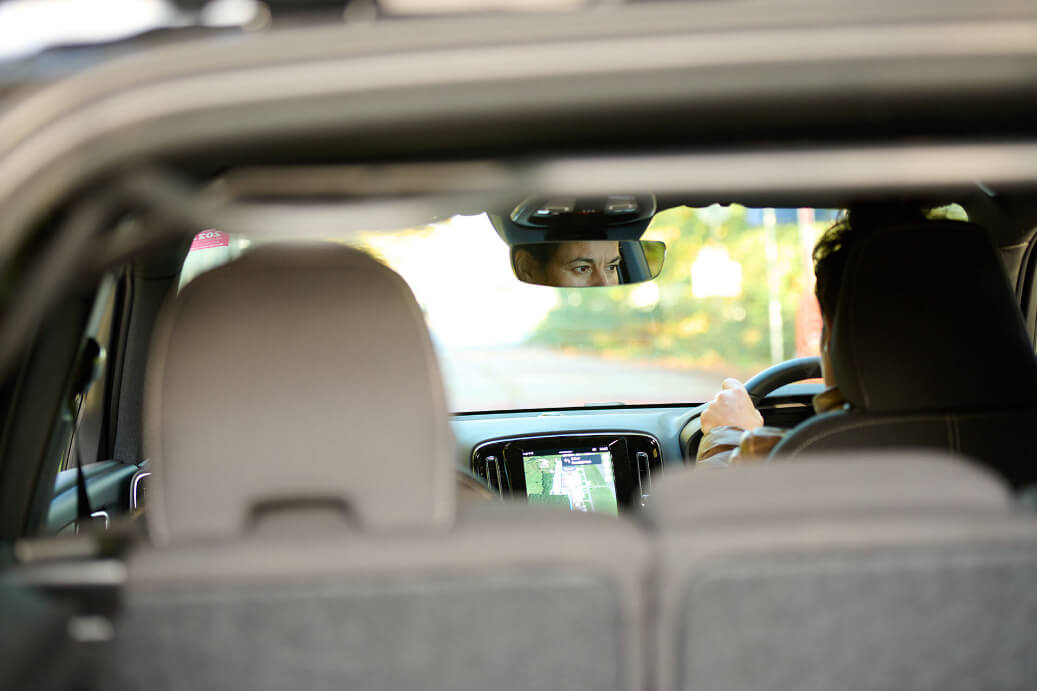
Licence Bureau partner Specsavers : Putting eyecare into perspective.
Risk
Driving is the most dangerous work activity carried out by most people. A third of all collisions involve someone driving for work purposes. This equates to 20 people killed and 220 seriously injured, every week, in collisions involving someone who was driving for work1. RoSPA calculates that, after deep-sea fishing and coal mining, driving 25,000 miles a year on business is the third most dangerous activity in the UK.
Responsibility
The HSE clearly states that health and safety laws apply to all aspects of work activities.2 This means that the employer has a responsibility for driver safety, whether the employee is driving a company car or their own vehicle, as part of their main working role or to pop to the post office or meet a client.
The employers’ duty of care goes beyond ensuring the vehicle is road-worthy and that employees have a valid driver’s licence and insurance. The employer, in fact, has a responsibility to ensure that each employee is fit to drive.
Requirement
Being able to see clearly is the most basic requirement for safe driving. It is, however, often disregarded. Poor eyesight can occur very gradually and can easily go unnoticed by the individual. The only way to be sure that vision is adequate for driving is to regularly have a full eye examination.
Eyecare provision:
- Providing regular, company-funded, eyecare is the best way to ensure the employer meets their duty of care.
- Eyecare does not have to be costly. Employers can purchase an Optical Care For Drivers voucher from Specsavers Corporate Eyecare for just £35. This entitles the employee to an eye test and £65 towards a pair of glasses.
- Reductions in insurance premiums may be available for employers who implement an eyecare policy for drivers.
- Failing to provide eyecare can prove extremely costly in terms of uninsured losses: fines, sick pay, lost time, damage of product, temporary labour, increased premiums, etc.
- The human cost of collisions is of course immeasurable and employee safety must always be at the forefront of an employer’s mind.
Eyecare considerations:
- An eye test will consider not only visual acuity (sight over distance) but also peripheral vision and the ability to switch focus between near and far objects (such as the dashboard controls and the road), for example.
- A full eye examination can detect a huge range of ocular conditions, including cataract, glaucoma, retinal detachment, optic neuritis, ocular tumours.
- It can also help to monitor the whole body and detect systemic conditions, such as, diabetes, raised blood pressure, high cholesterol, brain tumours, thyroid problems, multiple sclerosis.
- Eyecare can be a big factor in preventative care and reducing sick leave.
Eyecare policies:
- Include eyesight in driving risk-assessments.
- Implement strict eyecare policies for all employees who drive in the course of their work.
- Provide a definition of the standards of an eyesight test, in line with the International Council of Ophthalmology and road traffic laws.
- Include a requirement for drivers to notify their employer of any changes in eyesight.
- Consider including eye tests in pre-employment checks.
- Define the frequency required for eye tests.
- Eye examinations should take place at least every two years.
- A perceived deterioration should be investigated straight away.
- Regular eyecare should be provided to all ages but is particularly important for those over the age of 45.
- Communicate the eyecare policy in Driver Handbooks, safety notices, on the company intranet and using attention-grabbing posters.
- Eyecare events are a good way to provide information and advice to drivers. Ask an optician to attend the event to provide on-the-spot vision screening for employees.
- It should go without saying but, make it clear that those who require glasses or contact lenses to drive must wear them.
Driver Information Packs are available free from Specsavers Corporate Eyecare. These include information, statistics, legislation updates, recent news items and materials to engage employees. Please call: 0115 933 0800 or email: uk.corporateeyecare@specsavers.com.
Visit www.specsavers.co.uk/corporate.
1. RoSPA information ‘Driving for work: fitness to drive’.
2. HSE guidelines ‘Driving at work’
